|
COP
OUT @ PARIS DECEMBER 2015
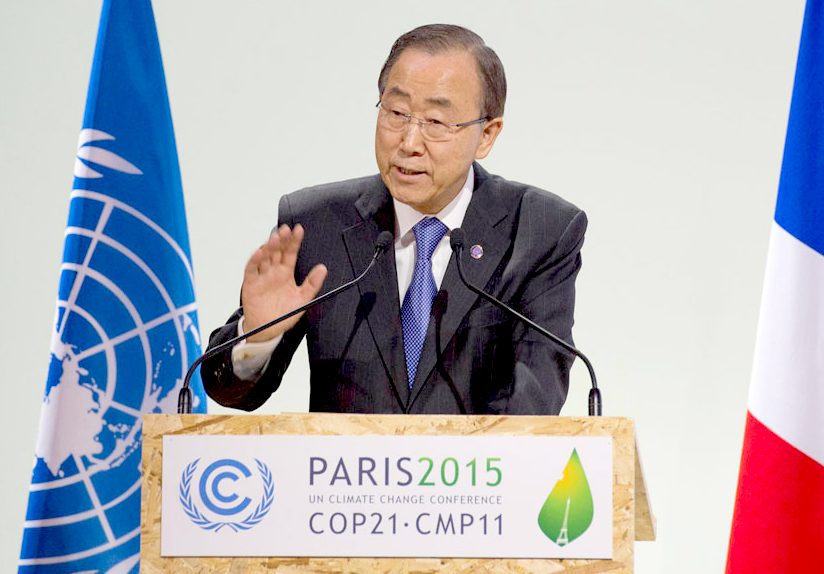
WELL,
WE TRIED - "Calm down dear." What did you
expect. Yes the targets are only voluntary, and yes even if
those saying they'll give it a whirl, actually get somewhere,
global warming will still be on the increase. We will most
likely pass the 2 degree target by around 0.7 of a degree.
Yup, it will get hotter, and yup, floods will increase, any
yup, acid oceans will get more acid, and yup, that means fish
stocks will decline further.
The conference was budgeted to cost €170m (US$186.87m at the time). The French government said that 20% of the cost will be borne by firms such as EDF, Engie (formerly known as GDF Suez), Air France, Renault-Nissan and BNP Paribas.
On 12 December 2015 the participating 195 countries agreed by consensus to the final global pact, the Paris Agreement, to reduce emissions as part of the method for reducing greenhouse gas. In the 12-page document the members agreed to reduce their carbon output "as soon as possible" and to do their best to keep global warming "to well below 2 degrees C". France's Foreign Minister Laurent Fabius said this
"ambitious and balanced" plan was a "historic turning point" in the goal of reducing global warming. However, some others criticized the fact that significant sections are "promises" or aims and not firm commitments by the countries.
NON BINDING COMMITMENTS & LACK OF ENFORCEMENT MECHANISMS
The Agreement will not become binding on its member states until 55 parties who produce over 55% of the world's greenhouse gas have ratified the Agreement. There is doubt whether some countries will agree to do so.
Each country that ratifies the agreement will be required to set a target for emission reduction, but the amount will be voluntary. There will be mechanism to force a country to set a target by a specific date and no enforcement if a set target is not met. There will be only a "name and shame" system or as Janos Pasztor, the U.N. assistant secretary-general on climate change, told CBS News (US), a "name and encourage" plan.
ZERO
CARBON TRANSPORT SOLUTION
One
way to make significant progress in the fight against climate
change is to put in place an infrastructure that most car
makers could adopt, if the political will was there. There are
no binding targets, but many more responsible corporations
appear to be trying to move to cleaner practices
on a voluntary basis. The proposed UniStation below is one
idea that has merit in our opinion. The company looking to
roll up their sleeves and develop a prototype cannot at the
moment afford to take the chance on disruptive technology, but
have recently entered a competition that might see them with a
demonstrator vehicle for 2016 or early 2017.

PROPOSED
EURO-STATION PROTOTYPE: Shown here is a Bluebird™ 2.4MW
- 3.44MW (as 60kW/hr or 86kW/hr packs) solar assisted service
station containing 40 cartridges on a continuous charge cycle.
Five of these stations (12 - 17.2MW) can recharge (refuel) 10
cars a minute. Next time you visit your BP
or Tesco
fuel pump, count the number of cars leaving the station in a
minute. You will find that an electric forecourt holds the
potential to be quicker. During rush hour, 300 cars might be
serviced in one hour. During an eight hour day 2,400 cars
might be serviced - with the equivalent battery charge cycle
of one hour - so less harmful to batteries than curbside fast
charging and we start every morning with 200 slow charged
cartridges from off-peak supplies. The same forecourt might be
used to service fuel-cell cars powered by liquid hydrogen, or
hydride pellets. One
size fits all. NOTE: This is a flat-pack design to keep
costs down. Flat pack buildings can be put up and dismantled
for relocation in a matter of days. We are even considering a
portable solution as a means to test out locations and give
demonstrations. By this means we may defeat the chicken
and egg situation that prevents EVs becoming more popular.

UNIVERSAL
FORMAT - An example of a smart-city "Universal"
energy cartridge with 8 cubic feet capacity - so between
20-40kW hours of energy storage - depending on the chemistry
used. This unit is suitable for a number of existing
super-mini cars - and is compatible with the Bluebird™ service
station prototype that is being proposed for a test town -
such as in the proposed Devonshire
project. This cartridge may contain lithium batteries or fuel
cell storage medium. Again, the adaptability tends to dispel
the chicken and egg malaise that pervades.

THE
DAMBUSTER As with the bouncing bomb, it takes more
than just the initial idea to make a system viable. Barnes
Wallis came up with the idea for releasing a spinning bomb
from a plane of his design. That was based on a discovery by Horatio
Nelson that cannon balls travel further if bounced off the
ocean. But it was Guy Gibson who came up with the method of
keeping the Lancasters just feet above the water and another
MOD spark who provided the hand held sights, as the bomb
release aimer. Only with all three innovations was it possible
to release a bomb at the right distance and height from the
target dams. Likewise, with the EuroStation and UniCartridge,
there are hidden factors needed to make the system workable.
Factors that the designers cannot reveal prior to patent,
but that they are willing to share under the protection of a
Non Disclosure Agreement. See a PowerPoint presentation here.
INSTITUTIONAL
INVESTORS' CONTRIBUTION TO LIMITING FOSSIL FUELS
Speaking at the 5th annual World Pensions Forum held on the sidelines of the COP21 Summit, Earth Institute Director Jeffrey Sachs argued that institutional investors would eventually divest from carbon-reliant firms if they could not react to political and regulatory efforts to halt climate change: “Every energy company in a [ pension fund’s] portfolio needs to be scrutinized from purely a financial view about its future, ‘Why is this [a company] we would want to hold over a five- to 20-year period?’ […] If we continue to hold major energy companies that don’t have an answer to a basic financial test, we are just gambling. We have to take a fiduciary responsibility – these are not good bets.”
Some U.S. policy makers concurred, notably Al
Gore, insisting that “no agreement is perfect, and this one must be strengthened over time, but groups across every sector of society will now begin to reduce dangerous carbon pollution through the framework of this agreement”
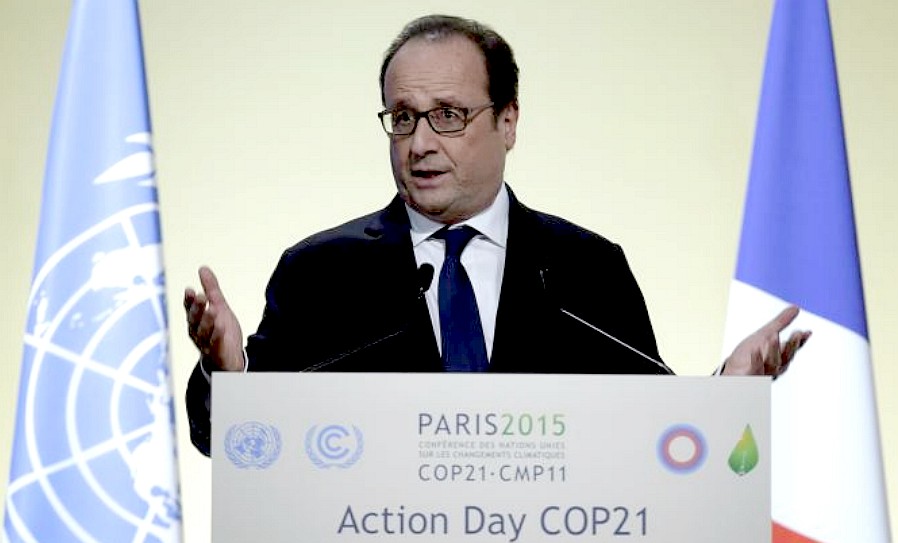
BBC
NEWS - WHAT DOES THE PARIS CLIMATE AGREEMENT MEAN FOR YOU
As the euphoria of delegates at the UN climate talks in Paris fades, it is time to get down to the business of saving the planet and ask what does it mean for me?
What did I miss?
Over the past two weeks, almost every nation on the planet has sent a team of negotiators to Paris to pore over page after page of nuanced jargon peppered with what seemed like a world record attempt for the most square brackets in a document.
But these brackets did matter. In the tense talks at a conference centre in north Paris, semantics was king.
Negotiators inhabited a world were "shall" would result in something becoming legally binding and "should" actually meant voluntary, as BBC environment analyst Roger Harrabin explained here.
The fortnight kicked off with more than 150 world leaders, including Presidents Obama, Putin and
Xi, descending on Paris to tell delegates that climate change was the most important issue facing us in the 21st Century.
Whether that was welcome support or unnecessary pressures it meant negotiators got down to business, often working through the night.
On Saturday evening - to claps, cheers and tears - a new landmark deal was born.
t was agreed by 195 nations. They will attempt to cut greenhouse gas emissions to a level that will limit the global average temperature to a rise "well below" 2C (3.6F) compared to pre-industrial levels - a level of warming deemed to be the point when dangerous climate change could threaten life on Earth.
You can read the final document here:
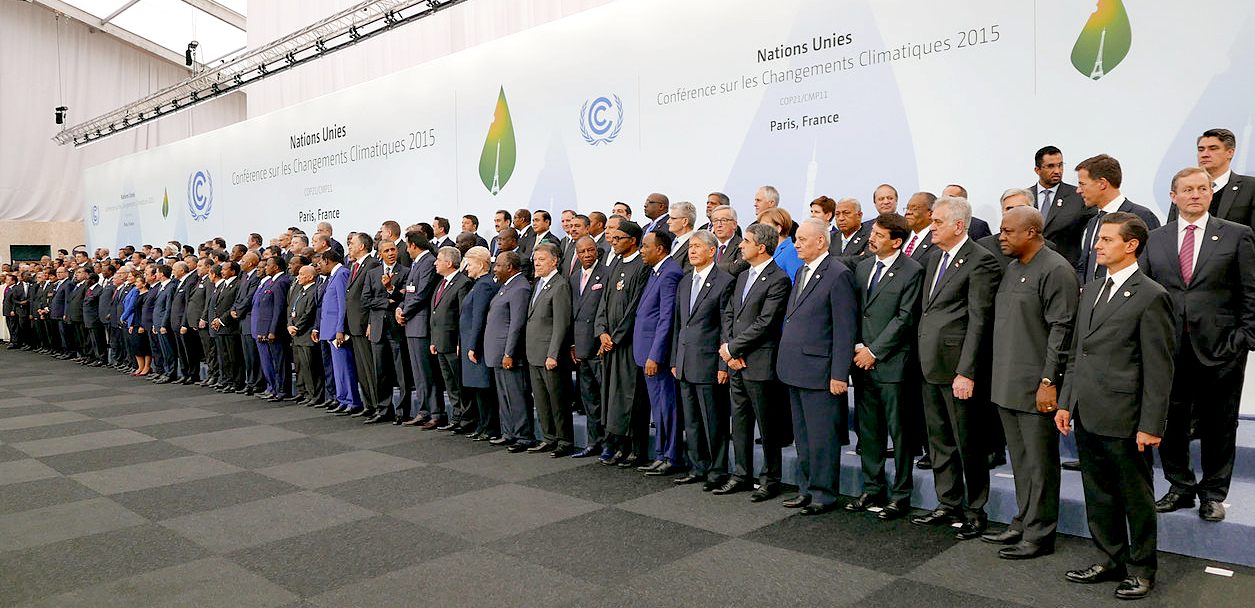
WHAT
DOES IT MEAN FOR ME?
It depends on a multitude of factors - who you are, where you live, how you get from A to B, how you earn a living, how you spend your cash and how you like to spend your spare time.
If you live on a small low-lying island in the middle of the Pacific Ocean, the new agreement offers hope.
If nations manage to deliver then it could be the difference between having to flee your ancestral home and starting again thousands of miles away in an unfamiliar foreign land, or being able to plan and build for your family's future.
If you live in an industrialised, developed nation then it all depends on how committed governments and leading businesses are to achieving the goal. It could affect how much tax you pay, it could affect how much it will cost you to run a car - it may affect how much it costs you to feed and clothe you and your family.
But if nations do not commit to achieving the goal of limiting temperature rise to well below 2C, then the cost of adapting to the impact of a changing climate system will also affect the cost of living.
Numerous studies, including the Stern Review on the Economics of Climate Change, say the cost of inaction will cost us all a great deal more than shifting to a
decarbonised, climate-friendly way of life.
If it's not legally binding, how will it work?
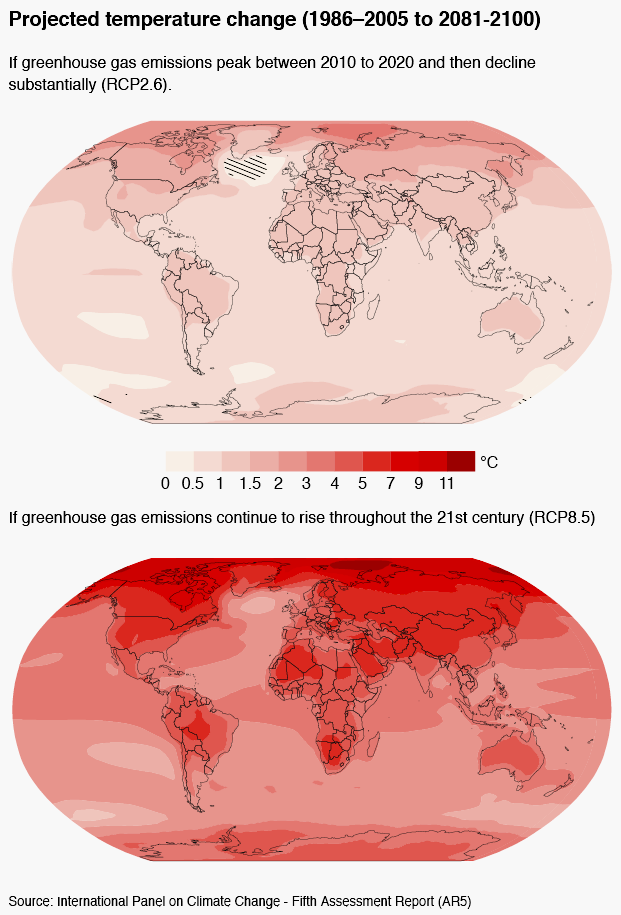
Some of it is legally binding within the United Nations framework. The regular review and submission of emission reduction targets will be binding.
So too will the $100bn fund from developed economies to help emerging and developing nations decarbonise their energy mix - which means moving away from burning fossil fuels to clean energy sources, such as renewables and nuclear.
What won't be legally binding will be the emission targets. These will be determined by nations themselves.
Within the agreement the targets are known as Intended National Determined Contributions
(INDCs). To date, 187 countries have submitted their INDCs.
Observers have calculated that all of the targets, if delivered, will only curb warming by 2.7C. This is well above, not well below, the 2.0C goal of the Paris Agreement.
This begs the question why the targets themselves are not legally binding under international law.
This relates back to the 2009 climate summit in Copenhagen. Observers say the attempt to impose binding targets on countries then was one of the reasons why the talks failed.
In Paris, a number of big emitting emerging economies - including China, India and South Africa - were unwilling to sign up to a condition that they felt could hamper their economic growth and development.
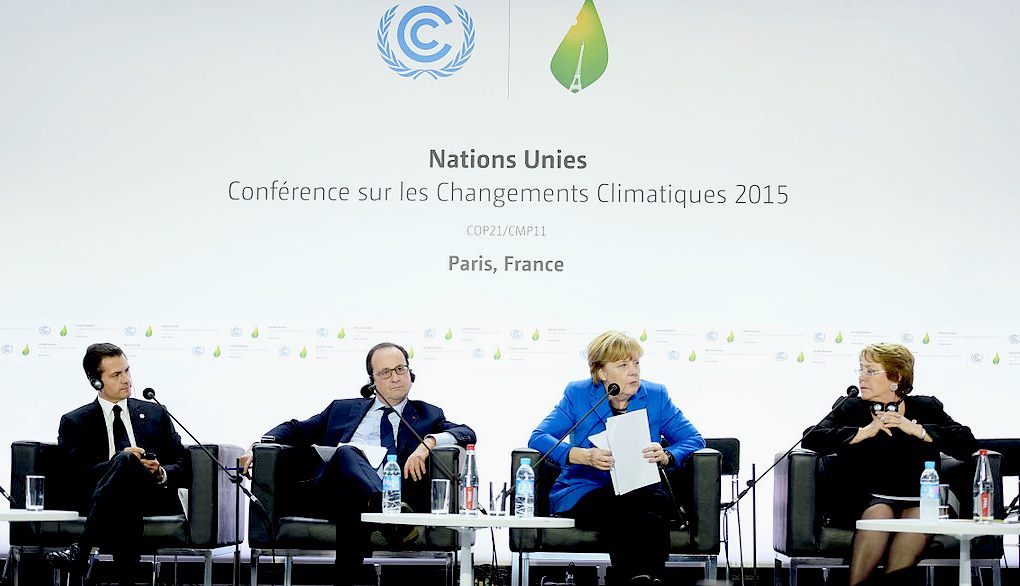
WHO
SEALED THE DEAL?
Nations have not been shy in coming forward to highlight their role in delivering a deal in Paris.
For example, just a few hours after the global climate deal was struck, US President Barack Obama told millions of TV viewers that it provided the "best chance we have to save the one planet we have". He also did not miss the opportunity to highlight the importance of "American leadership" in clinching the deal.
UK Prime Minister David Cameron said the deal represented "a huge step forward in securing the future of the planet".
The reaction from world leaders echoed the rousing rhetoric of their speeches on the opening day of the two weeks of negotiations.
The fact is that every nation played their part. Under the UN system, a single nation could have objected and refused to adopt the agreement and the deal would have been lost.
Among the more colourful rumours circulating in Paris was a suggestion that there was papal pressure to one president who was wavering.
And one shining star of the negotiations was French Foreign Minister Laurent
Fabius, the president of the conference.
People lauded his handling of nations' positioning and posturing, with many saying that his political and diplomatic experience was one of the main reasons why there was a happy ending to the story.
Now the question is not who sealed the deal but who will
deliver?
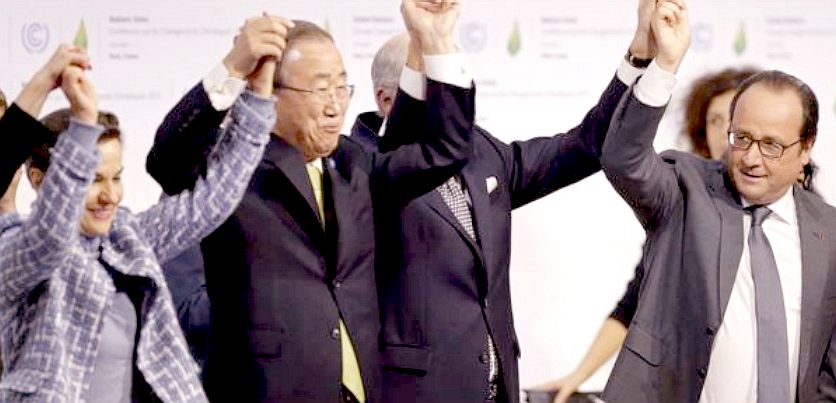
REALITY
BITES
Even the most supportive observers accept that it is going to be a very tall order for the world to deliver a package of measures that will result in limiting global temperature rise to "well below" 2C (3.6F), let alone 1.5C, above pre-industrial levels.
Finance departments of governments around the globe are going to have to put decarbonisation at the heart of their fiscal policies. Past evidence suggests that this will be a big ask. To date, it has - at best - been on the margins and as soon as there have been wobbles in economic activity, green policies have either been put on the back burner, diluted, ignored or removed from statute books altogether.
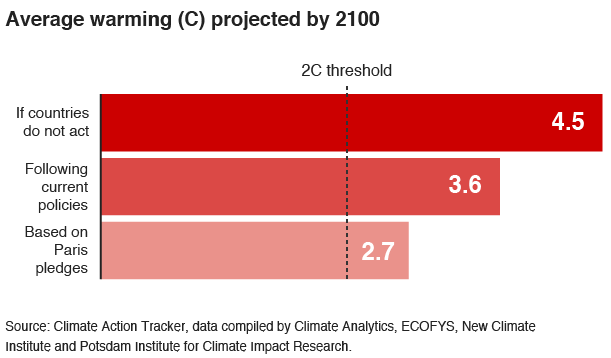
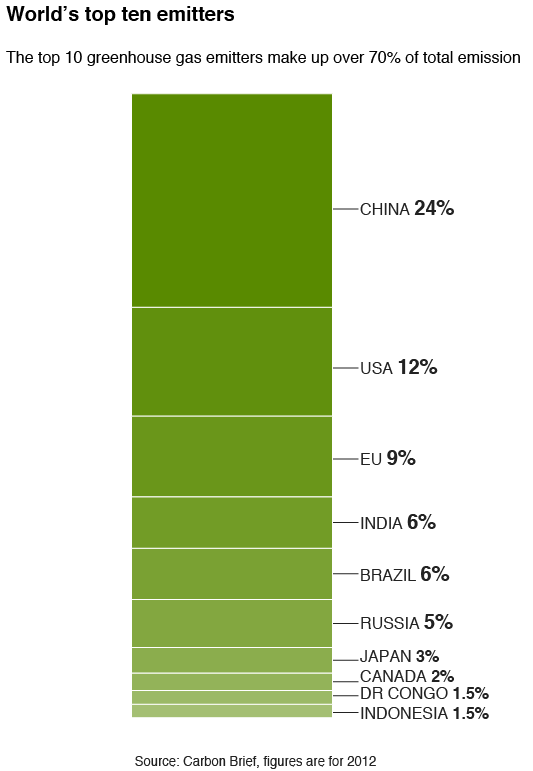
There will have to be a paradigm shift in the philosophy of political parties. Lip service and nods, accompanied with a little tinkering will not be enough to deliver the aims of the Paris Agreement.
Campaigners say this is where you come in. Fiscal policy shapes economic activities. Governments, made up from elected politicians, shape fiscal policy. You elect politicians.
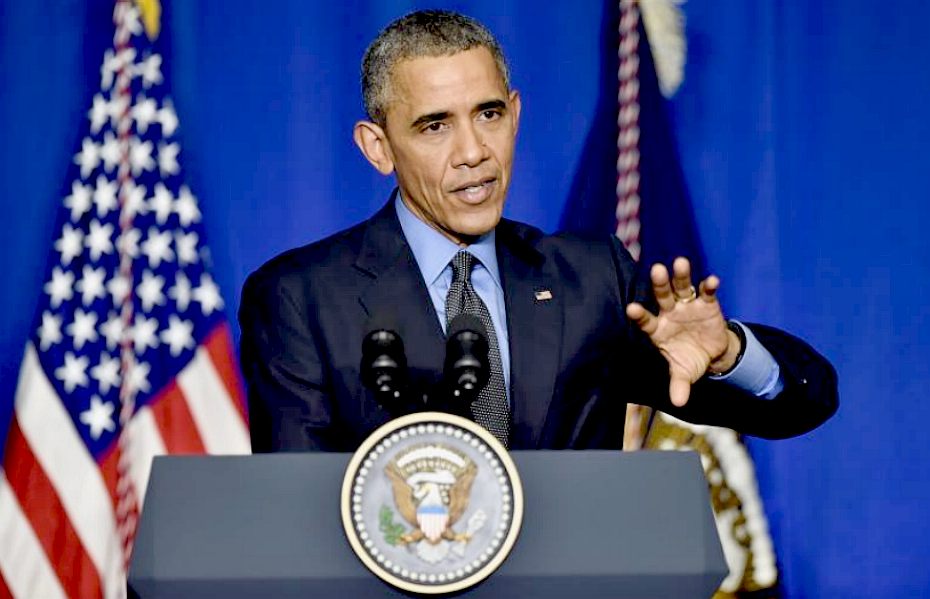
IB TIMES 1 DECEMBER 2015
- Major U.S. corporations are throwing their support behind an aggressive global treaty to cut greenhouse gas emissions. More than 70 companies, from 21st Century Fox to Amazon.com to American Honda Motor, signed a White House pledge this week as negotiators from around the world arrived in Paris for United Nations-led climate change talks, the Obama administration said Tuesday.
The latest addition nearly doubles the number of firms to sign the American Business Act on Climate Pledge, which was launched in June. The 154 signatories together employ nearly 11 million people and represent more than $4.2 trillion in annual revenue, according to the White House.
President Barack Obama was in Paris this week for the start of the two-week summit, where leaders from nearly 200 countries will work to reach a universal agreement. Part of the president's climate push includes rallying support from the U.S. business sector. This summer, several U.S. companies, including Apple, Google, Microsoft and Bank of America, announced at least $140 billion in new investments to lower their carbon emissions and boost funding for clean energy
- part of a separate White House effort to recruit private companies in the fight against climate change.
The companies that signed the American Business Act on Climate Pledge Tuesday voiced support for a strong outcome in Paris, the White House said in a news release. The firms also agreed to support any emissions-cutting deal by setting targets to reduce their own corporate emissions, increase investments in low-carbon technologies and take other actions to build more sustainable businesses.
Mass media giant 21st Century Fox, for instance, said it would reduce carbon emissions by 25 percent compared with 2013, normalized by revenue, as well as slash emissions from Fox feature film productions by 15 percent per day of filming. Amazon restated its goal to use 100 percent renewable energy to power its Amazon Web Services division. By next year, the company expects to get 40 percent of the division’s power from solar, wind and other clean energy sources.
Rio Tinto Group, a British-Australian mining giant with U.S. coal operations, said in the White House pledge that Rio Tinto “recognizes climate change is occurring and is largely caused by human activities.” The conglomerate vowed to seek a “substantial
decarbonization” of its business by 2050 and work to reduce emissions in its business operations.
NPR THE SALT JUNE 15 2015
Haworth, 52, is the last purse-seine tuna fisherman in San Diego — a city once heralded as the tuna capital of the world. Making a living isn't easy for commercial fishermen like Haworth. For much of the year he fishes for squid, but El Nino patterns have changed fishery patterns, making squid harder to find. And forget about the sardine fishery — crashing stocks have triggered its closure until 2016.
At the same time, warmer ocean conditions have brought an abundance of bluefin tuna into the region, shifting Haworth's focus.
Historically, he says, "there was never really a quota on bluefin, and we could go out and catch plenty and sell them. Or we could catch sardines, or mackerel, so we'd have something to do when
[ocean] conditions changed" or when the species that Haworth depended on for his income became less reliable. "Now, we're just so restricted."
Haworth says that the buyer he had originally lined up for his haul backed out of the sale, then later offered him a mere $1-$2 a pound — too low for him to break even. Instead, he took his catch and headed for San Diego's fledgling fishers market to sell directly to local foodies.
"If you have a 30-pound fish, and you're selling it to a consumer for $2.99 a pound, it's $90 for one fish. I was trying to get to the price point where we're going to make decent money, but one where every family could come down and grab a fish if they want one," says Haworth.
"Mexico now has a quota of 6,000 metric tons of fish over two years," he notes, while the quota for U.S. commercial fishermen is just a tenth of that. "How could our 600 metric tons not be sustainable, when you think about it in the picture of the whole world? We're only catching 600 tons," says Haworth.
The Pew Charitable Trusts plans to call for stronger measures to protect Pacific bluefin later this month, when the Inter-American Tropical Tuna Commission — the agency responsible for setting international catch limits — meets in Ecuador.
"We would disagree that the quotas, as they are currently set, are sustainable," says Jamie Gibbon, a tuna expert with Pew.
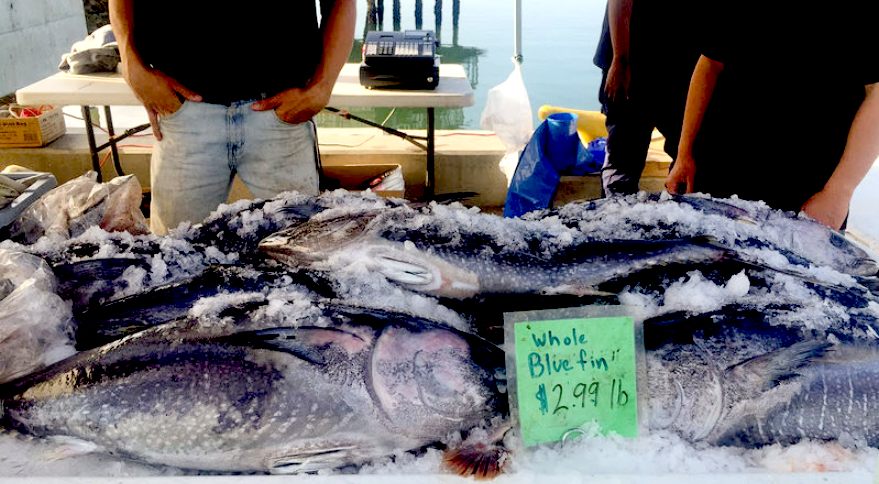
NPR THE SALT DECEMBER 14 2015
- FISH STOCKS ARE DECLINING WORLDWIDE WITH CLIMATE CHANGE ON THE
HOOK by
Clare Leschin-Hoar
For anyone paying attention, it's no secret there's a lot of weird stuff going on in the oceans right now. We've got a monster El Nino looming in the Pacific. Ocean acidification is prompting hand wringing among oyster lovers. Migrating fish populations have caused tensions between countries over fishing rights. And fishermen say they're seeing unusual patterns in fish stocks they haven't seen before.
Researchers now have more grim news to add to the mix. An analysis published Monday in the Proceedings of the National Academy of Sciences finds that the ability of fish populations to reproduce and replenish themselves is declining across the globe.
"This, as far as we know, is the first global-scale study that documents the actual productivity of fish stocks is in decline," says lead author Gregory L. Britten, a doctoral student at the
University of California, Irvine.
Britten and some fellow researchers looked at data from a global database of 262 commercial fish stocks in dozens of large marine ecosystems across the globe. They say they've identified a pattern of decline in juvenile fish (young fish that have not yet reached reproductive age) that is closely tied to a decline in the amount of phytoplankton, or microalgae, in the water.
"We think it is a lack of food availability for these small fish," says Britten. "When fish are young, their primary food is phytoplankton and microscopic animals. If they don't find food in a matter of days, they can die."
The worst news comes from the North Atlantic, where the vast majority of species, including Atlantic cod, European and American plaice, and sole are declining. In this case, Britten says historically heavy fishing may also play a role. Large fish, able to produce the biggest, most robust eggs, are harvested from the water. At the same time, documented declines of phytoplankton made it much more difficult for those fish stocks to bounce back when they did reproduce, despite aggressive fishery management efforts, says Britten.
When the researchers looked at plankton and fish reproduction declines in individual ecosystems, the results varied. In the North Pacific — for example, the Gulf of Alaska — there were no significant declines. But in other regions of the world, like Australia and South America, it was clear that the lack of phytoplankton was the strongest driver in diminishing fish populations.
"When you averaged globally, there was a decline," says Britten. "Decline in phytoplankton was a factor in all species. It was a consistent variable."
And it's directly linked to climate change: Change in ocean temperature affects the phytoplankton population, which is impacting fish stocks, he says.
Food sources for fish in their larval stage were also a focus of research published earlier this summer by Rebecca Asch, now a post-doctoral research associate at Princeton University. Asch studied data from 1951 to 2008 on 43 species of fish collected off the Southern
California coast and found that many fish have changed the season when they spawn. When fish spawned too early or too late in the season, there can be less plankton available to them, shrinking their chance of survival. She calls it a "mismatch" between when the fish spawn and when seasonal plankton blooms.
Knowing just how vulnerable our fisheries are to potential climate change is on the radar of NOAA Fisheries. The agency has put together a Fish Stock Climate Vulnerability Assessment report expected to be released in early 2016. And like many things associated with climate change, there will be winners and losers.
Jon Hare is the oceanography branch chief for NOAA Fisheries' Northeast Fisheries Science Center and a lead researcher on the agency's assessment. He says they looked at 82 fish and invertebrate species in the Northeast. About half of the species, including Atlantic cod, were determined to be negatively impacted by climate change in the Northeast U.S. Approximately 20 percent of the species are likely to be positively impacted—like the Atlantic croaker. The remainder species were considered neutral.
Similar assessments are underway in the California Current and the Bering Sea, and eventually in all of the nation's large marine ecosystems.
"This is where the idea of ecosystem-based management comes in. It's not only fishing that is impacting these resources," says Hare. "We need to take a more holistic view of these resources and include that in our management."
Britten says the fact that productivity of a fishery can change should be an eye-opener for fisheries management.
"It's no longer just pull back on fishing and watch the stock rebound. It's also a question of monitoring and understanding the ability of stocks to rebound, and that's what we demonstrated in this study. The rebound potential is affected as well," says Britten.
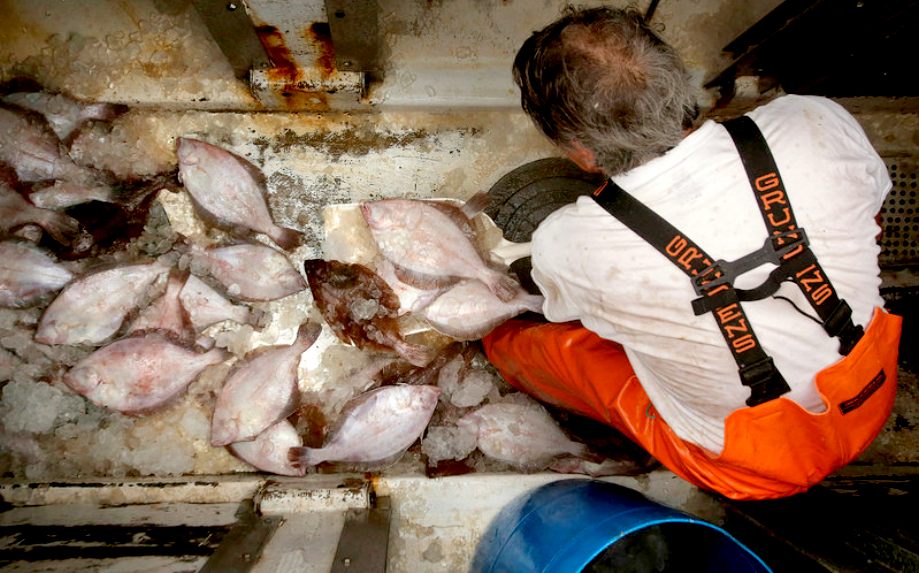
FOOD
SECURITY
- Okay, so the targets are only targets. How will that help in
the fight to save our oceans, and more importantly for
millions of starving people; our fish?
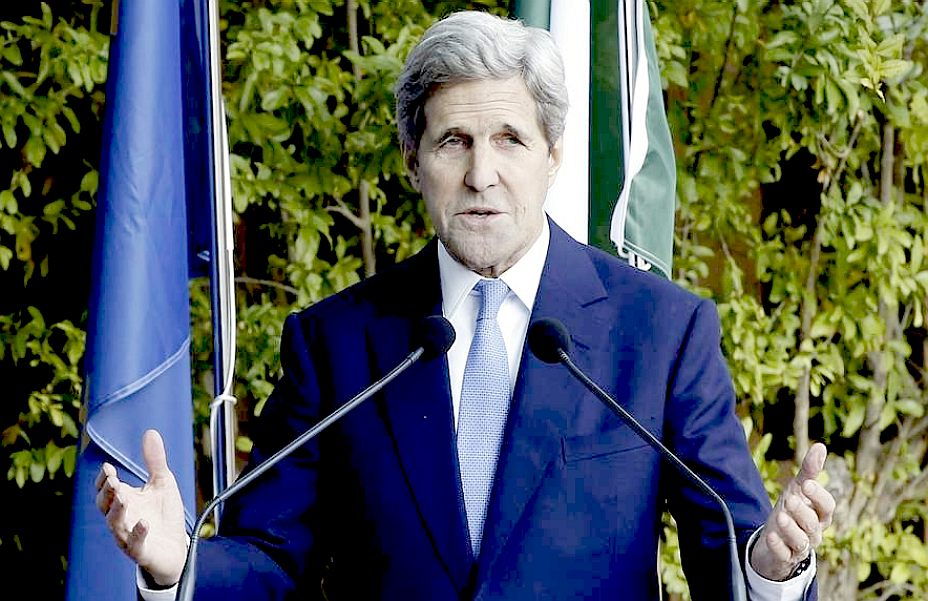
OCTOBER
17 2015
- MILAN - U.S. Secretary of State John Kerry on Saturday called on countries to find consensus and reach an international agreement to reduce carbon-dioxide emissions.
The US is leading a climate protection charge the envy of
Europe and the less said about Asia the better.
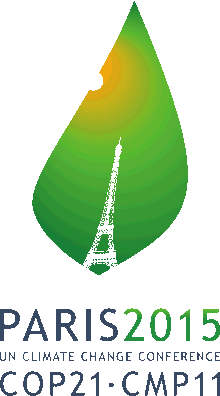
CONTACTS
3rd Floor, Two America Square, London, EC3N 2LU
Phone: +44 (0) 20 7871 0173
Fax: +44 (0) 20 7871 0101
Email: info@cop21paris.org
Twitter: https://twitter.com/Climate_Action_
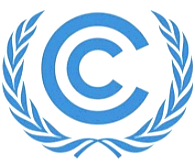

LINKS
CNN
2015
November 30 world news cop21 Paris conference five things you
need to know
CNN
latest news 2015/11/29
Europe France Paris cop21 climate change conference
Wikipedia
2015_United_Nations_Climate_Change_Conference
Twitter
cop21
COP21
The
Guardian environment 2015 November 28 thousands march over
climate change in Brisbane and across New Zealand
CLF
blog
climate talks must include plan for worlds oceans
http://www.cop21paris.org/
http://www.bluebird-electric.net/blueplanet_ecostar/Smart_Cities_EuroStation_Electricity_Networks_Load_Levelling_Energy_Supplies.htm
http://www.ibtimes.com/paris-climate-talks-us-companies-join-white-house-pledge-strong-climate-change-2206356?rel=rel2
http://unfccc.int/documentation/documents/advanced_search/items/6911.php?priref=600008831
http://www.ibtimes.com/paris-climate-talks-us-companies-join-white-house-pledge-strong-climate-change-2206356?rel=rel2
http://www.bbc.co.uk/news/science-environment-35092127
http://www.npr.org/sections/thesalt/2015/12/14/459404745/fish-stocks-are-declining-worldwide-and-climate-change-is-on-the-hook
http://www.npr.org/sections/thesalt/2015/06/11/412943456/why-is-this-fisherman-selling-threatened-bluefin-tuna-for-2-99-a-pound
http://www.wsj.com/articles/john-kerry-urges-unity-on-fighting-climate-change-1445085912
http://www.theguardian.com/commentisfree/2015/dec/07/the-guardian-view-on-britains-floods-the-reality-of-climate-change
http://www.bluebird-electric.net/blueplanet_ecostar/bluebird_cartridges_batteries_fuel_cells_electrical_systems.htm
https://twitter.com/Climate_Action_
http://www.cop21paris.org/
http://www.clf.org/blog/clean-energy-climate-change/climate-talks-must-include-plan-for-worlds-oceans/
http://edition.cnn.com/2015/10/30/world/cop21-paris-conference-five-things/index.html
http://edition.cnn.com/2015/11/29/europe/france-paris-cop21-climate-change-conference/
https://en.wikipedia.org/wiki/2015_United_Nations_Climate_Change_Conference
https://twitter.com/cop21
http://www.cop21.gouv.fr/en/
http://www.theguardian.com/environment/2015/nov/28/thousands-march-over-climate-change-in-brisbane-and-across-new-zealand
http://www.leschin-hoar.com/
http://www.pnas.org/content/early/2015/12/09/1504709112
|

















